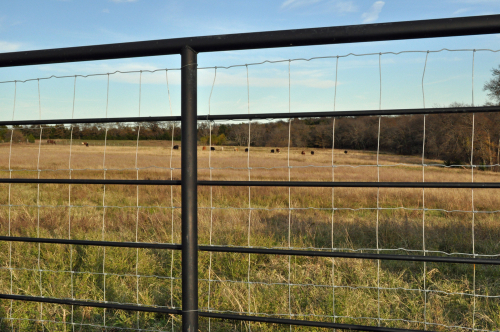When it comes to securing and protecting a farm, choosing the right type of fencing is crucial. Fences play a vital role in defining property boundaries, keeping livestock contained, and deterring unwanted intruders. There are various types of fencing options available for farms, each with its own set of benefits and considerations. In this blog post, we will explore some of the best types of fencing for farms to help you make an informed decision on the most suitable option for your agricultural property.
Factors to Consider When Choosing Farm Fencing
Before delving into the best types of fencing for farms, it’s important to consider a few key factors that can influence your decision:
1. Purpose: Determine the primary purpose of the fence, whether it’s to contain livestock, protect crops, or provide security. Different types of fencing are designed for specific purposes, so clarifying your needs can help narrow down your options.
2. Livestock: Consider the type and size of livestock you have on your farm, as this can impact the height and strength requirements of the fence. Some animals may require more robust fencing to prevent escapes or injuries.
3. Terrain: Take into account the terrain and landscape of your farm, as certain fencing types may be better suited to flat or hilly terrain. Factors such as soil composition and drainage should also be considered when selecting farm fencing.
4. Maintenance: Evaluate the maintenance requirements of different fencing options, as some materials may require more upkeep than others. Factors such as durability and longevity should also be taken into consideration.
Best Types of Fencing for Farms
Now that we’ve outlined some key considerations, let’s explore some of the best types of fencing for farms:
1. Woven Wire Fencing: Woven wire fencing is a popular choice for livestock farms, as it provides excellent containment for animals. This type of fencing is durable, flexible, and can be customized with different wire gauges and spacings to accommodate various livestock sizes. Woven wire fencing is also relatively easy to install and requires minimal maintenance.
2. Barbed Wire Fencing: Barbed wire fencing is a cost-effective option for farms looking to deter intruders and keep livestock contained. This type of fencing consists of wire strands with barbs spaced at intervals, creating a strong deterrent for predators and unauthorized access. While barbed wire fencing is effective for security purposes, it may not be suitable for all livestock types due to the risk of injury.
3. Electric Fencing: Electric fencing is a versatile option for farms that need a portable and customizable fencing solution. Electric fences deliver a mild shock to deter livestock from crossing the boundary, making them an effective containment method for large grazing areas. Electric fencing is easy to install, adjustable, and can be powered by solar or battery sources for added convenience.
4. High-Tensile Wire Fencing: High-tensile wire fencing is a sturdy and low-maintenance option for farms that need a durable barrier for livestock. This type of fencing consists of tightly stretched wires that provide strength and flexibility, making it ideal for containing large animals. High-tensile wire fencing is highly resilient to impacts and weather conditions, reducing the need for frequent repairs or replacements.
5. Split Rail Fencing: Split rail fencing is a classic and rustic option for farms looking to define property boundaries or enhance aesthetic appeal. This type of fencing consists of wooden rails that are horizontally placed between vertical posts, creating a visually appealing and functional barrier. Split rail fencing is ideal for open pastures or decorative purposes, adding a touch of charm to the farm landscape.
Choosing the Right Fencing for Your Farm
When selecting the best type of fencing for your farm, it’s essential to evaluate your specific needs, budget, and long-term goals. Consider factors such as livestock containment, property boundaries, security requirements, and maintenance considerations to determine the most suitable fencing option for your agricultural property. Consulting with a fencing professional or agricultural specialist can also provide valuable insights and recommendations tailored to your farm’s unique requirements.
Summary
The best types of fencing for farms depend on a variety of factors, including purpose, livestock type, terrain, and maintenance preferences. Whether you opt for woven wire, barbed wire, electric, high-tensile wire, or split rail fencing, selecting the right type of fencing can enhance the security, efficiency, and aesthetics of your farm. By carefully assessing your needs and choosing a fencing solution that aligns with your farm’s requirements, you can create a safe and functional environment for your livestock, crops, and property.
Need Fence Contractors in Carlsbad, NM?
Welcome to Guadalupe Mountain Fencing LLC! We’re proud to be your trusted name in top-quality fencing throughout southern New Mexico and western Texas since 2010. Here at Guadalupe Mountain Fencing LLC, we provide commercial, residential, farm, and ranch fencing. Whether you’re in need of barbed wire, piped, chain link, high, net wire, or oil field fencing, we can get the job done for you. We’re licensed and insured, and our expert has over 20 years of experience in the industry. Call us today for all of your fencing needs!
